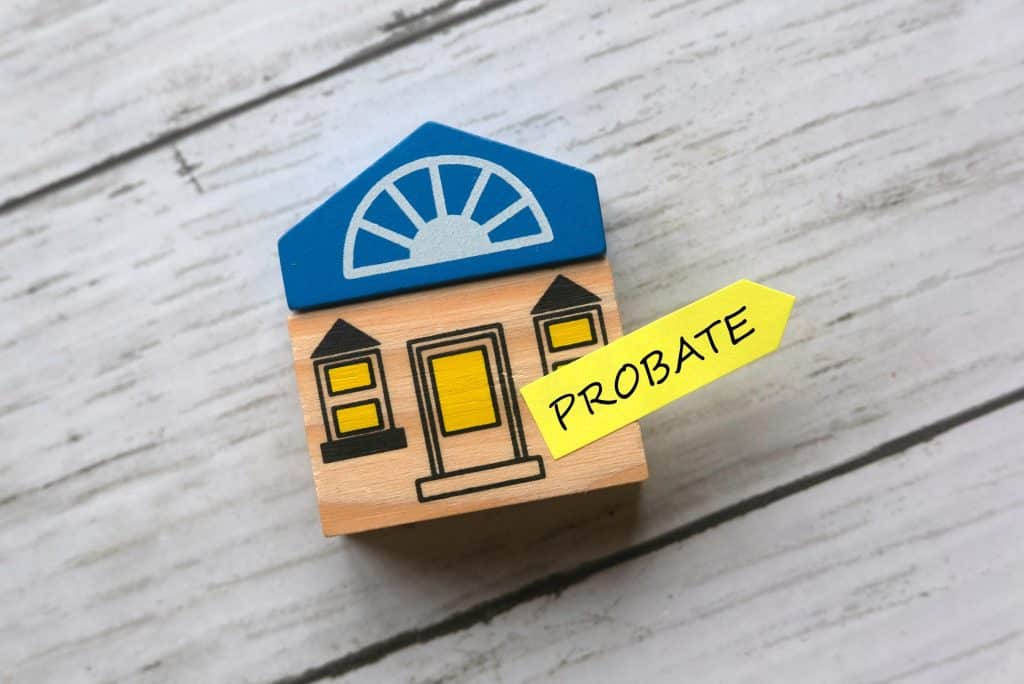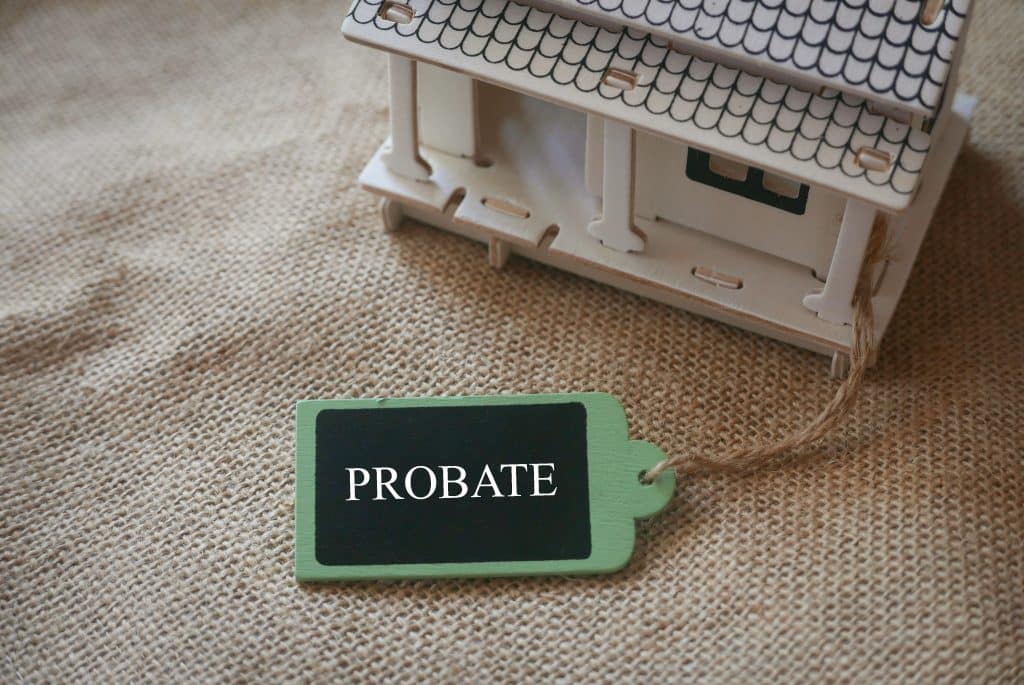The law and procedures around probate can be confusing. Keep on reading to get answers to frequently answered questions about probate.
How To Obtain A Grant Of Probate
What is probate, when is it required, and what are the steps you need to follow in order to obtain it? Here, we’ll look at the probate process in more detail.
What is a grant of probate?
When someone has been appointed the executor of a will, they have a range of administrative duties to carry out. While it’s possible to turn down the role, most people don’t.
The Grant of Probate is what confirms the authority of the executor to administer the estate of the deceased person. This includes tidying up their affairs and paying off any remaining debts and duties, before distributing their assets according to their will.
This process obviously requires a high degree of trust and authority to access bank accounts and manage investments such as property or equities, and to do so the executor needs to obtain the legal authority to act.
In England and Wales, this legal authority is called a Grant of Probate.
If you are appointed an executor and make a successful application for probate, you will receive a document that will allow you to start dealing with the estate of the deceased.
How do I get a grant of probate?
To receive a grant of probate, you need to make an application. There are a range of ways in which this can be done, and various steps that you need to take in order to be able to apply.
However, before you can make any progress with dealing with the estate you will need to receive a grant of probate.
Do I need a grant of probate if there is a will?
A grant of probate is required if there is a will. In fact, the authority of the executor is derived from the terms of the will. Indeed, the person who is given the grant of probate is usually the executor named in the will.
It becomes more complicated if no will exists, or if a will fails to name an executor.
The different types of probate
There are three types of probate that may be awarded that take account of different circumstances at the time of the deceased’s death.
These depend on a variety of factors, the key one being whether a will exists.
The three types of probate are:
- Grant of Probate – A Grant of Probate, also known as a Grant of Representation, is issued when a will has been made and that will has named an executor. This is the evidence of the executor’s authority to administer the deceased’s estate. This authority derives from the will itself.
- Grant of Letters of Administration – Letters of Administration will be granted if the deceased has died without a will. The Grant of Letters of Administration gives legal authority to act to the person who is entitled by law to administer the deceased’s estate. This person is known as the administrator.
- Grant of Letters of Administration with Will – This form of Grant of Representation is granted when a will exists but the will doesn’t contain the name of an executor, or if all of the executors named in the will have died or are deemed incapable of acting. This is generally rare, and when it does occur it’s important to seek legal advice before proceeding.
How do you apply for probate?
After someone has died, the executor cannot immediately file the forms applying for a grant of probate. There are a range of steps that need to be taken before the application stage is reached. Here we’ll explain the steps that need to be taken for probate to be granted:
Register the death
The first step is to register the person’s death. This has to be done within five days in England, Wales and Northern Ireland. You will need copies of the death certificate so it can be prudent to purchase a number. Copies of the death certificate currently cost £11 in England and Wales.
Value the estate
The next stage is to value the estate of the deceased. This will mean sorting through the deceased’s bank statements, financial accounts, and other papers to gain a comprehensive understanding of their assets and liabilities. Records of any accounts they hold will need to be found.
For many estates this is a straightforward process. For larger, and more complex estates with a range of investments, properties and belongings, it can be more involved. The executor will need to contact various institutions including banks, lenders, fund managers, pension providers, local government in relation to council tax, and HMRC for the details of any outstanding tax liabilities.
The government’s ‘Tell Us Once’ service allows you to inform a range of departments about the death in one go. You should receive details of the service once the death has been registered.
You will usually need to supply a certified copy of the death to each financial institution the deceased had an account with and ask for a final statement. Most assets will be frozen until a grant of probate has been issued.
Valuing property
If the estate includes a property, this will need to be valued, and a written valuation by an estate agent or surveyor will usually be the most appropriate. This is particularly important if the Inheritance Tax threshold is likely to be crossed. The HMRC will sometimes challenge the valuation of a property if they believe it is too low. The same applies for valuable assets, such as art, collectibles or antiques.
File probate forms
After the value and an inventory of the estate has been assessed, the executor should then be in a position to complete a probate application form (PA1P). As well as supplying the correct paperwork, you will then need to sign a statement of truth that declares the details that have been provided are accurate.
File Inheritance Tax forms
Inheritance Tax forms will need to be completed. As well as the value of the estate, HMRC will require details of cash gifts that were made by the deceased in the seven years prior to their death. If the deceased has been predeceased by their spouse or civil partner, then it’s possible for the predeceased’s unused IHT allowance to be combined with the deceased’s.
For some estates this can increase the nil-rate band to £650,000. There are a range of potential forms that may need to be completed at this stage, and legal advice can assist in ensuring that any additional allowances are claimed for.
Pay probate fees
The current probate application fee in England and Wales is £215. This applies whatever the size of the estate, with exemptions for estates that are worth less than £5,000. If an application is made through a solicitor the fee is £155. Extra copies of the grant of probate costs £1.50 and it’s helpful to pay for a number of copies at this stage as applying later will cost more.
Multiple copies of the grant of probate are required for the whole administration process and normally an executor will order at least five.
Pay Inheritance Tax
If everything is in order, and HMRC have accepted your submission, then you will need to pay any Inheritance Tax that is due. If there are enough funds in any of the deceased’s accounts then a direct payment to HMRC can be arranged. UK banks will usually permit this if they are in receipt of an IHT 423 form. If there is a property or estate to sell, HMRC will usually accept Inheritance Tax payments in instalments. They will only require ten percent of the overall total in advance.
What documents do you need to support your application for probate?
The documents you will need to complete a probate application are:
- The original will and any codicils.
- Two copies of the will on plain A4 paper.
- The death certificate.
- The appropriate Inheritance Tax form regardless of whether the estate is liable for Inheritance Tax.
How long does the probate process take?
In general the probate process will take somewhere between 6-12 months but can be longer in more complex cases.
Why would you not apply for probate?
In the overwhelming majority of cases an executor will need to apply for probate before they can make any progress administering the deceased’s affairs. If the deceased person had very few possessions it’s unlikely that probate will be necessary. There is no set limit for what counts as a small estate, but generally if the deceased didn’t own property and had less than £5,000 in assets, then probate will not be required.
If a financial institution requires probate before an executor can have access to any accounts, then an application will need to be made regardless of the value of the estate. Different institutions have different thresholds for when probate is necessary.
Can I apply for probate online?
You can apply for probate online but will need to ensure you have your documentation at hand, such as death certificates and the value of the estate that has been calculated.
Who can apply for probate?
Only certain people can apply for probate, and who can apply depends on whether there is a will. If there is, the named executors can apply. If there isn’t, the closest living relative, according to the laws of intestacy, can apply.
Probate checklist
There are a number of steps that need to be taken until a Grant of Probate has been awarded. Some of these are essential for the application process, others are related to the broader task of being an executor.
- Register the death within five days. If a coroner is involved the registrations can be delayed. Obtain several copies of the death certificate.
- Plan the funeral and check if a pre-paid funeral plan is in place by contacting a funeral director.
- Locate the will, check it for any funeral wishes and contact the executors if you’re not appointed.
- Secure the deceased’s property, valuables and any documents, particularly if the house is unoccupied.
- Check if there is insurance cover for the house and contents. Notify the insurers.
- Arrange a redirection of post. This can be important to ensure that you receive any essential documentation and information regarding the estate.
- Collect all the personal documents belonging to the deceased, organise a list of the deceased’s assets and liabilities. Check if they have made any lifetime gifts of cash or other assets.
- Register the death certificate with financial institutions.
- Arrange to pay funeral expenses.
- Contact the utilities and local government for household bills.
- Complete the Inland Revenue account form, either an IHT400 or an IHT205. This must be lodged within one year of death.
- Pay any inheritance tax that is due and get a receipt from HMRC.
- Apply for a Grant of Probate. This will usually take two to three weeks from the date of submitting documents with the Probate Registry.
Freeman Jones Solicitors provide expert and experienced probate and will advice, including dispute settlement and challenging wills.
To find out more about our range of services call 01244 506 444 or email info@fjsolicitors.co.uk







